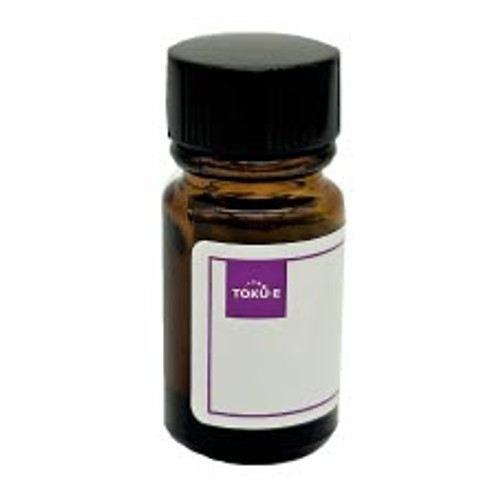Faropenem Sodium is a broad spectrum β-lactam antibiotic belonging to the penem antibiotic class. . Faropenem is active against both Gram-positive and Gram-negative bacteria. Faropenem was developed by Daiichi Asubio Pharma as two forms: Farpenem Sodium, and the ester prodrug faropenem medoxomil (syn: faropenem daloxate). Penems are hybrids of penicillins and cephalosporins. Faropenem is structurally similar to the carbapenems, but carries a sulfur atom at position 1.
Faropenem sodium is freely soluble in water.
| Mechanism of Action |
β-lactams interfere with PBP (penicillin binding protein) activity involved in the final phase of peptidoglycan synthesis. PBP’s are enzymes which catalyze a pentaglycine crosslink between alanine and lysine residues providing additional strength to the cell wall. Without a pentaglycine crosslink, the integrity of the cell wall is severely compromised and ultimately leads to cell lysis and death. Resistance to β-lactams is commonly due to cells containing plasmid encoded β-lactamases. Like other antibiotics in the penem class, Faropenem Sodium is highly resistant to β-lactamases and some extended spectrum β-lactamases (ESBLs). Faropenem was halted in its development due to fear of triggering resistance to the entire penem class if used indiscriminately. |
| Spectrum | Faropenem Sodium is a broad-spectrum antibiotic active against many Gram-positive and Gram-negative aerobes and anaerobes. It has shown to be very effective against anaerobic pathogens known to cause oral infections. It is resistant to hydrolysis by nearly all β-lactamases. |
| Microbiology Applications |
Faropenem is commonly used in clinical in vitro microbiological antimicrobial susceptibility tests (panels, discs, and MIC strips) against Gram-positive isolates. Medical microbiologists use AST results to recommend antibiotic treatment options. Representative MIC values include:
|
| Molecular Formula | C12H14NNaO5S • xH20 |
| Impurity Profile | Faropenem Isomer: ≤0.5% Maximum Single Impurity: ≤0.3% Heavy Metals: ≤20ppm |
| References |
Gonzalo et al (2020) Ertapenem and Faropenem against Mycobacterium tuberculosis: In vitro testing and comparison by macro and microdilution. BMC Microbiol 20:271 Guzmán F (2008) Beta Lactams Antibiotics (penicillins and Cephalosporins) Mechanism of Action. Medical Pharmacology. Pharmacology Corner Hayashi Y and Baba H (2017) Faropenem. In: Kucers' The Use of Antibiotics. 7th ed. CRC Press. Milazzo I (2003) Faropenem, a new oral penem: Antibacterial activity against selected anaerobic and fastidious periodontal isolates." J. Antimicrob. Chemother. 51(3):721-725 Mushtaq S, Hope R, Warner M, Livermore DM (2007) Activity of Faropenem against cephalosporin-resistant Enterobacteriaceae. J Antimicrob. Chemother. 59(5):1025-1030 PMID 17353220 Schurek KN et al (2007) Faropenem: A review of a new oral penem. Expert Rev. Anti-Infec. Ther. 5(2):185–198 |
| MIC | Bacteroides fragilis| 0.12 - 32|| Citrobacter freundii | 1.56 - 6.25|| Clostridium difficile| 1 - 8|| Clostridium perfringens| 0.25 - 1|| Enterobacter cloacae| 0.39 - 25|| Enterococcus faecalis| 0.5 - 8|| Enterococcus faecium| 2 - >256|| Escherichia coli| 0.125 - 3.13|| Haemophilus influenzae| 0.03 - 250|| Klebsiella pneumonia| 0.2 - 6.25|| Legionella pneumophila| ≤0.063|| Listeria sp| 0.06 - 0.5|| Moraxella catarrhalis| ≤0.006 - 1|| Morganella morganii | 0.78|| Neisseria meningitidis| 0.008|| Peptostreptococcus sp.| 0.008 - 1|| Proteus mirabilis| 3.13 - 12.5|| Proteus vulgaris | 0.78 - 6.25|| Providencia rettgeri | 0.39 - 3.13|| Pseudomonas aeruginosa| 0.5 - 512|| Salmonella sp| 0.25 - 4|| Serratia marcescens| 0.78 - >100|| Serratia sp.| 1 - 128|| Shigella sp.| 0.5 - 1|| Staphylococcus aureus | 0.05 - >128|| Staphylococcus epidermidis| ≥0.063 - >128|| Stenotrophomonas maltophilia| >100 - >128|| Streptococci| 0.03 - 0.13|| Streptococcus pneumonia| ≤0.006 - 4|| Streptococcus pyogenes| ≤0.006 - 0.025|| |








